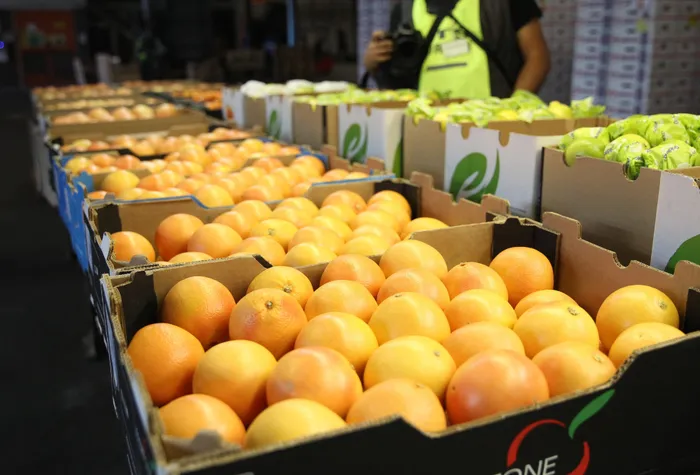
Farming associations in South Africa express significant concerns over the potential impact of new US tariffs, which could reach 30%, on the agricultural sector.
Image: Doctor Ngcobo / Independent Newspapers
Farming associations across South Africa have expressed serious concern regarding the future of the agricultural sector following the announcement from US President Donald Trump indicating that tariffs of up to 30% could be imposed on South African exports.
The announcement has left uncertainty hanging over the agricultural industry, which relies heavily on trade with the US.
Agricultural Business Chamber of SA (Agbiz) chief economist, Wandile Sihlobo, said they were yet to receive full details of how the tariffs will apply.
"It is perhaps more prudent to work on the assumption that the duty-free access South Africa enjoyed through African Growth and Opportunity Act (Agoa) is probably over or, at best, will be limited," Sihlobo said.
"We know now that a baseline tariff of 10% will apply to imports from all countries. It remains unclear if there are differences in the remaining 20% (that makes up the rest of the 30%) duties levied against South Africa. We suspect there may be some differences product by product, but that will be clear as soon as the US authorities release more information.
Sihlobo said that from a domestic policy response, the industry remained convinced that South Africa should seek a Free Trade Agreement with the US when the dust settles.
“A reliable, long-standing trade arrangement would serve the South African industries well. We see Kenya as an example, and they currently are in discussions about a Free Trade Agreement with the US and have levied far lower tariffs of 10%. We also believe the retaliation approach may not be ideal.”
Theo Boshoff, Agbiz CEO said they were seeking formal legal opinion on the impact on Agoa.
"Our initial research conducted by the Fruit Desk in February indicates that the US Trade Act of 1974 may permit the Executive to impose tariffs trumping other trade legislation (such as Agoa) in certain circumstances but we are obtaining formal legal opinion," Boschoff said.
"In this regard, we appeal for patience, as the legal advisors will only be able to fully answer the question as to whether the tariffs trump Agoa's duty-free access once the US government releases formal communication in this regard. There is still uncertainty about the future of SA’s participation in Agoa."
Farming association TLU SA general manager, Bennie van Zyl, said that now America was introducing 10% tariffs and even more for some countries.
"The name of the game for America is Fair Trade policy within your country and if you are not playing the game they put in some type of penalty with this higher trade tariff. They made it applicable to some countries and for South Africa it is 30%," Van Zyl said.
"There are certain commodities not included in this such as wood and gold. At the end of the day for us as a country struggling to get out of debt the more that we get tariffs that affects us it negatively impacts us. Unfortunately, America did make it clear that they were going to impose tariffs due to the expropriation bill. The problem is that America doesn't see the Expropriation Bill as we see it and they are seeing it in their own way."
Andre Thomashausen, Professor Emeritus for International Law at the University of South Africa (Unisa), said that 30% import duties on all products from South Africa for entry into a market that was hugely positive in favour of South Africa's trade balance, was a severe blow.
"South Africans must understand that this is the price for their lone stance in defence of Hamas, one of the World's principal foes of all our own fundamental values, such as human dignity, gender equality and freedom of opinion," he said.
"Donald Trump's America is open to reviewing the new tariffs once South Africa recommits to the alliance of Western interests and removes its punitive import duties levied on American products."
BUSINESS REPORT